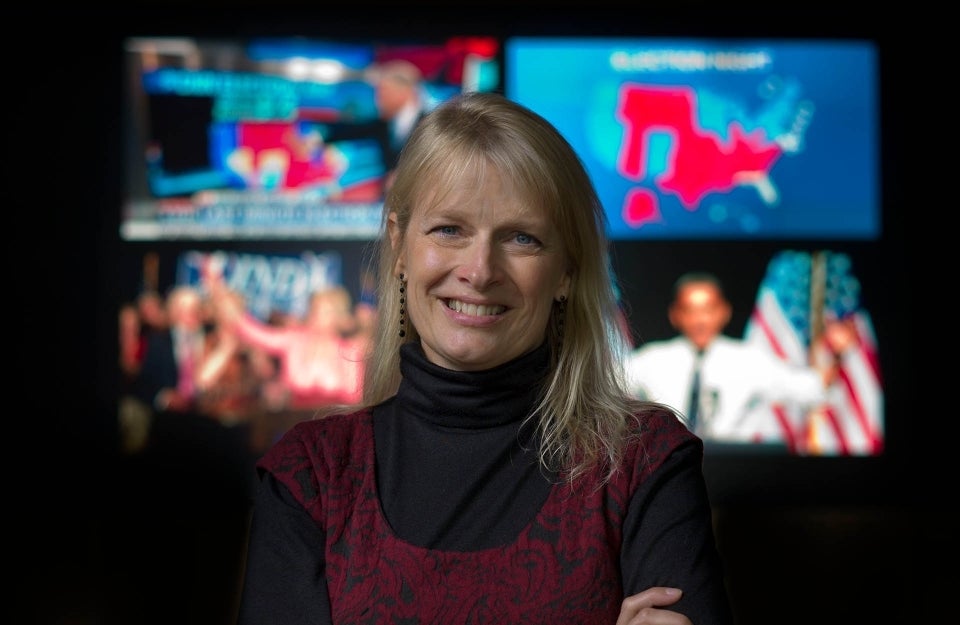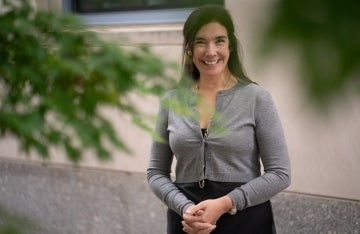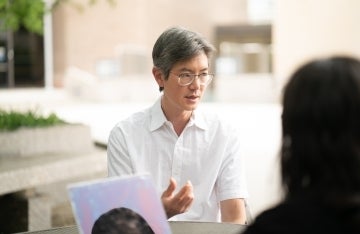Mutz Awarded 2017 Andrew Carnegie Fellowship
Mutz will study the growing backlash against globalization in Europe and North America.

Brexit. The Travel Ban. Europe’s migrant crisis.
These are all examples of a growing backlash against globalization. Why, at a moment in history when the world is more interconnected than ever before, are increasing numbers of people expressing isolationist sentiments?
Annenberg Professor Diana C. Mutz aims to find out.
And, thanks to the Carnegie Corporation of New York, she’ll be doing that in-depth over the next two years. It was announced today that Mutz has won a 2017 Andrew Carnegie Fellowship, which includes a grant of up to $200,000.
Mutz, the Samuel A. Stouffer Professor of Political Science and Communication and the Director of the Institute for the Study of Citizens and Politics, is interested in bringing psychology to bear on her globalization research, and she believes that research on how people process near versus distant objects has implications for how they think about foreign affairs.
“Physical distance is closely tied to psychological distance,” she says. “Seeing things is inextricably intertwined in the human brain with being near them, so things that people can see with their own eyes tend to be processed as if they were close, whereas those that are out of view are processed as if distant.”
Mutz also notes that distance encourages objectification of “the other,” decreases emotional responses, and produces a reduced sense of moral obligation. This means that it’s easier for people to ignore or neglect things in the world that they perceive as being distant from themselves.
“I hope to better understand how media can convey issues tied to globalization in ways that do not fan the flames of nationalism,” she says, “but instead further understanding of global interconnectedness.”
Mutz’s two-year project will culminate in a conference of journalists and academics hosted at the University of Pennsylvania.
Mutz has previously received a variety of fellowships and awards, including a 2016 Guggenheim Fellowship and a 2011 Lifetime Career Achievement Award in Political Communication from the American Political Science Association. She was inducted as a Fellow of the American Academy of Arts and Sciences in 2008.
She is also the second Annenberg professor in two years to win an Andrew Carnegie Fellowship. Professor Marwan M. Kraidy received the award in 2016.
“This well-deserved award speaks volumes about the quality of Professor Mutz’s scholarship,” said Annenberg School Dean Michael X. Delli Carpini. “And that this is the second Andrew Carnegie Fellowship received in two years speaks equally loud about the quality the Annenberg School faculty more generally.”
Mutz is an expert on public opinion, political psychology, mass political behavior, and political communication. She was a co-founder of the Time-Sharing Experiments for the Social Sciences, which promoted interdisciplinary methodological innovation across the social sciences, and for which she and her co-PI received the Warren Mitofsky Innovators Award in 2007. At Annenberg since 2003, she teaches courses on media and politics, political communication, and experimental design.
She is the author of numerous publications. Of her six books, her most recent, In Your Face Politics: The Consequences of Incivility (Princeton University Press, 2015), won the David O. Sears Book Award from the International Society of Political Psychology. Mutz has also won two Robert Lane Prizes for Best Book in Political Psychology by the American Political Science Association for Impersonal Influence: How Perceptions of Mass Collectives Affect Political Attitudes (Cambridge University Press, 1998) and Hearing the Other Side: Deliberative Versus Participatory Democracy (Cambridge University Press, 2006). Her 2016 research which linked reading Harry Potter with disliking Donald Trump went viral in the months leading up to the 2016 presidential election.
Before coming to Annenberg, Mutz taught at the University of Wisconsin-Madison and The Ohio State University.
Now in its third year, the Andrew Carnegie Fellowship will award 35 scholars with a total of $7 million in 2017. 200 candidates were nominated by more than 600 leaders representing a range of universities, think tanks, publishers, and nonprofit organizations. The candidates’ proposals were initially evaluated by an anonymous team of prominent scholars, educators, and intellectuals, and the final selections were made by a distinguished panel of 16 jurors, including University of Pennsylvania President Amy Gutmann.



